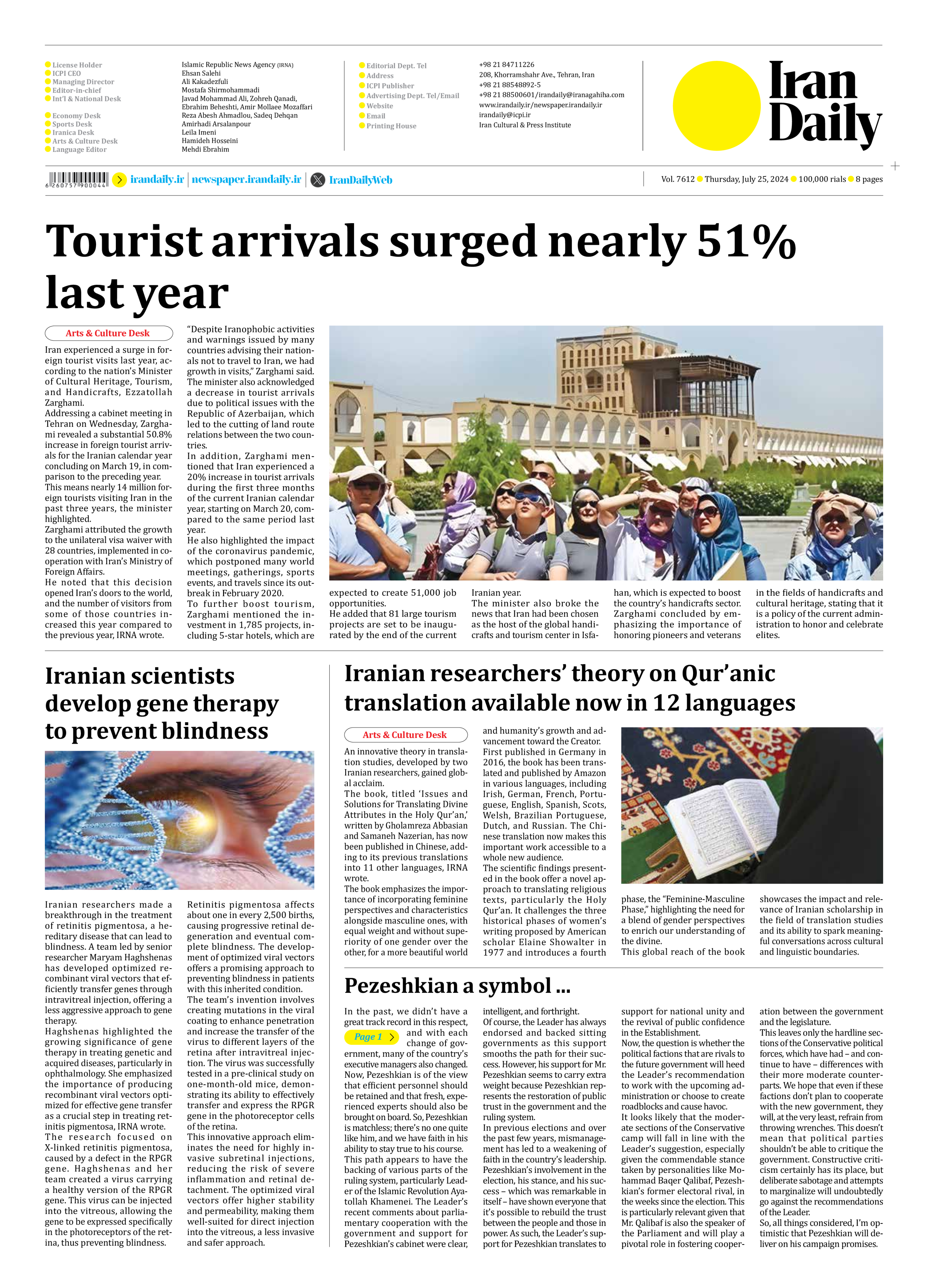
Copy in clipboard...
Iranian researchers’ theory on Qur’anic translation available now in 12 languages
The book, titled ‘Issues and Solutions for Translating Divine Attributes in the Holy Qur’an,’ written by Gholamreza Abbasian and Samaneh Nazerian, has now been published in Chinese, adding to its previous translations into 11 other languages, IRNA wrote.
The book emphasizes the importance of incorporating feminine perspectives and characteristics alongside masculine ones, with equal weight and without superiority of one gender over the other, for a more beautiful world and humanity’s growth and advancement toward the Creator.
First published in Germany in 2016, the book has been translated and published by Amazon in various languages, including Irish, German, French, Portuguese, English, Spanish, Scots, Welsh, Brazilian Portuguese, Dutch, and Russian. The Chinese translation now makes this important work accessible to a whole new audience.
The scientific findings presented in the book offer a novel approach to translating religious texts, particularly the Holy Qur’an. It challenges the three historical phases of women’s writing proposed by American scholar Elaine Showalter in 1977 and introduces a fourth phase, the “Feminine-Masculine Phase,” highlighting the need for a blend of gender perspectives to enrich our understanding of the divine.
This global reach of the book showcases the impact and relevance of Iranian scholarship in the field of translation studies and its ability to spark meaningful conversations across cultural and linguistic boundaries.







